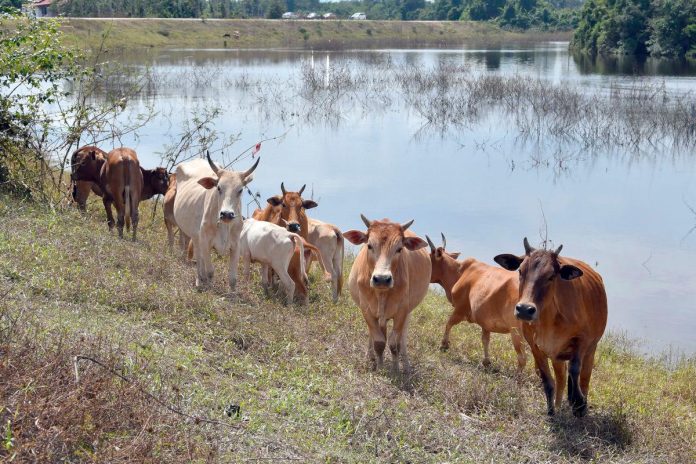PUTRAJAYA: Malaysia has remained free of anthrax since the last reported case to the World Organisation for Animal Health in 1976.
In a statement today, the Department of Veterinary Services (DVS) confirmed that no cases of anthrax have been reported in the country to date.
DVS noted that it takes the recent anthrax outbreak in Thailand seriously, particularly following the confirmation of a human fatality due to anthrax infection on May 1, as reported by Thailand’s Department of Disease Control.
The case was linked to cattle slaughtering and consuming raw beef in Don Tan District, Mukdahan Province, northeastern Thailand, which borders the Lao People’s Democratic Republic.
“At present, we remain vigilant and have requested assurance from the Thai authorities that no animals or animal products from high-risk anthrax areas are being exported to Malaysia,” the statement read.
The department explained that anthrax is caused by the bacterium Bacillus anthracis, a zoonotic disease, i.e., an animal disease that can infect humans and may be fatal.
“This disease can infect livestock and humans through direct contact with spores produced by Bacillus anthracis.
“It can cause a high mortality rate among livestock. Common clinical signs in animals include high fever, which may cause sudden death,” it said.
DVS urged livestock farmers to immediately make a report if they detect any of these symptoms in their animals.
“The department has also requested that Thai authorities provide updates on the current situation, measures taken to control the movement of animals and animal products within Thailand, and their contingency plan for managing the outbreak.
“Malaysia imports live cattle and buffalo from Thailand, and all livestock entering the country must undergo strict veterinary inspections before being allowed in,” read the statement.
As a precautionary measure, the DVS continues to carry out control and prevention activities to ensure Malaysia remains free of anthrax.
“DVS advises and urges livestock farmers to enhance farm biosecurity, especially in preparation for the upcoming Hari Raya Qurban celebrations.
“The health status of all new livestock brought onto farms must be verified through inspections by certified veterinary officers and accompanied by valid livestock transfer permits.
“DVS calls on all stakeholders, especially livestock farmers, to stay informed on the latest developments concerning animal disease outbreaks and to immediately report any clinical signs of disease in their animals,” the statement added.








